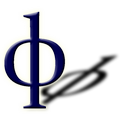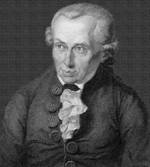Phil
 30: Kant’s Ethics
30: Kant’s Ethics
The aim is that students become familiar with the principles of Kant’s ethics. Kant’s ethics belongs to the ethics of duty. Why? How can we measure the value of some action? What is the difference between legality and morality? What should man do? Why does Kant set categorical imperatives and not hypothetical imperatives? What are the maxims? How do the maxims determine the value of performance? What do students think about rigorism in Kant’s ethics? How does Kant’s rigorism influence their lives and life in general today? What is the relation between the moral law and idea of freedom? What does “to be free” mean for Kant and what for students? What does the principle of universality mark in Kant’s ethics? Explain the Scheler’s interpretation of Kant’s ethics as “non-commissioned officer’s morale”.
 Literature:
Literature:
- Immanuel Kant “The Critique of Pure Reason”, “Groundwork of the Metaphysics of Morals”;
- V. Korac, B. Pavlovic “The History of Philosophy”, Philosophy textbook for the 4th grade of grammar and vocational schools;
- Gary Banham “Kant’s Practical Philosophy: From Critique to Doctrine”;
- Frederick C. Beiser “The Fate of Reason: German Philosophy from Kant to Fichte”;
- Broad C.D. :“Kant: An Introduction”;
- Gordeon E. Michalson “Kant and the Problem of God”;
- John Rawls “Lectures on the History of Moral Philosophy”.

























